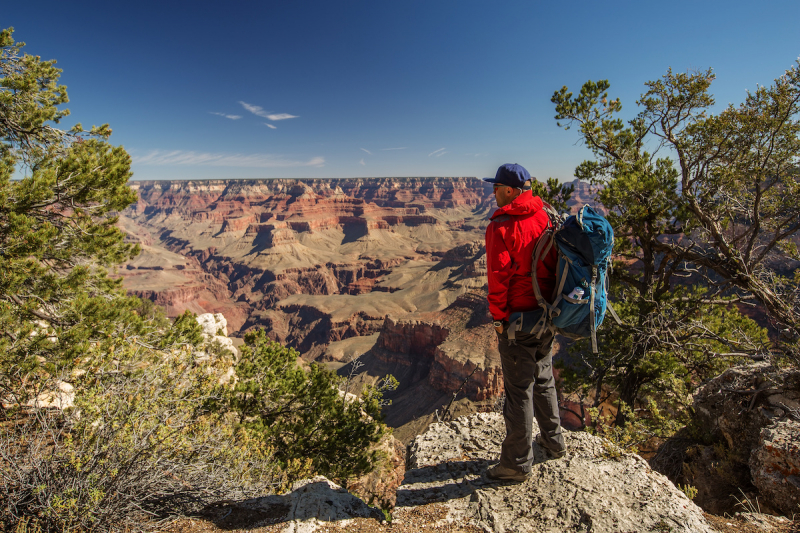Arizona means living with sunshine year round, even when it’s not super hot outside. That can be dangerous for your skin. Some people believe that the cooler weather in winter decreases their risk of developing skin cancer. The truth is, regardless of the temperature outside, the sun can still cause skin damage. All sun exposure can lead to a higher risk of skin cancer–even in those winter months that aren’t super hot.
Skin Cancer Risks in Winter
Protecting your skin from skin cancer is a year-round job. Why? Because harmful ultraviolet (UV) rays are always being released from the sun. Yes, sunlight is strongest during the summer and surrounding months, but that doesn’t mean you should slack off on skin protection when the sun doesn’t seem as strong in winter.
UV rays still reach your skin through dark cloud coverage, especially at high altitudes. Living in Arizona means that there are opportunities for other year-round activity, such as golf, hiking, mountain biking, snowshoeing, and skiing. This means that the rays are hitting you throughout all four seasons, maintaining that risk of skin cancer and premature aging.
UVA rays can also penetrate glass, so even if you aren’t outdoors, it’s still possible to damage your skin while spending a bright day indoors.
How to Protect Against Skin Cancer in Winter
Skin cancer is the most common cancer in the United States, according to the American Cancer Society (ACS). The good news is that it’s one of the easiest to prevent if you take the proper steps to protect yourself. Some ways you can protect your skin can include:
- Covering up.When it comes to protecting your skin from the sun, clothing is your first line of defense–regardless of the time of year. The face, head, and neck are where the majority of skin cancers occur, so make sure your wardrobe includes UV-blocking sunglasses and a wide-brimmed hat in addition to pants and long sleeves, which can cover larger areas of your skin. The goal is to leave very little skin exposed to the sun as often as possible.
- Using sunscreen.Use a broad-spectrum sunscreen with an SPF (Sun Protection Factor) of 30 or higher whenever you spend time outdoors. Apply generously at least 20 minutes before going outdoors, spreading evenly on all exposed areas. It’s important to reapply to any exposed skin every 90 minutes to two hours. Sunscreen should be reapplied immediately after swimming or sweating and toweling off. Be sure to also protect your lips by wearing lip balm that is SPF 15 or higher. Read more about choosing the right sunscreen for you in our blog on how to read a sunscreen label.
- Scheduling activities around the sun.When possible, try scheduling your activities to where they fall early in the morning or later in the afternoon, when the rays aren’t as strong. UV rays are typically the strongest during the hours of 10 AM and 4 PM.
- Avoid tanning beds. It may be tempting to keep a summer glow by using a tanning bed in the winter. Tanning beds should be avoided at all times because they lamps give out UVA and UVB rays that cause long-term skin damage, which can contribute to skin cancer.
Winter air leads to dehydration that can cause dry skin, which is more prone to damage from UV rays.In addition to the above tips, it’s important to think about hydration, especially when living in the desert. Even during times you may not feel thirsty, it’s important to understand that your body loses water in the same way during colder months as it does during a hot summer through sweating, breathing, and urinating. Furthermore, dehydration can lead to dry skin, which is more prone to damage from UV rays, so it’s vital that you do your best to maintain a good fluid intake. To ensure you’re properly hydrated:
- Drink healthy fluids. Plain or fruit-infused water, healthy fruit and vegetable juices, hot tea (preferably decaf), and even hot water with lemon are good choices. Don’t wait until your thirsty–keep sipping throughout the day.
- Minimize your caffeine and alcohol intake.Alcohol and caffeinated beverages like soda, tea, coffee act as diuretics and can contribute to dehydration.
- Eat foods with high water content. Some foods to keep you hydrated include broccoli, cucumbers, celery, strawberries, and watermelon.
- Check your urine.Light urine means you are likely hydrated enough. Dark urine means you need to increase your fluids.
You can learn more about how you can fight against overexposure to UV light by reading our blog on skin cancer prevention tips.
Remember, extreme UV rays reach Arizona all year long. With that said, there is no reason to fear the sun. Have fun in it, practice sun safety, and encourage others to do it, too!



